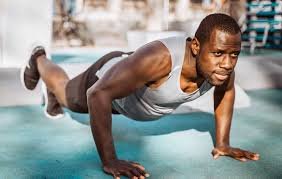One naturally occurring substance that can be found in the cannabis plant is cannabidiol, or CBD. CBD is favored by those looking for the possible health benefits of cannabis without the intoxicating effects because it does not produce the psychoactive “high” that tetrahydrocannabinol (THC) does. A complex network of receptors and neurotransmitters, the endocannabinoid system in the human body controls mood, appetite, pain perception, and immune response, among other physiological functions.
Key Takeaways
- CBD is a non-psychoactive compound found in cannabis that interacts with the body’s endocannabinoid system to promote balance and homeostasis.
- Using CBD for exercise recovery can help reduce inflammation, alleviate muscle soreness, and improve sleep quality.
- CBD can enhance performance and endurance by reducing anxiety, improving focus, and promoting relaxation.
- Incorporate CBD into your fitness routine through oral tinctures, topical creams, or edibles for targeted relief and support.
- When choosing CBD products for fitness goals, look for third-party tested, high-quality options and consult with a healthcare professional for personalized recommendations.
CBD interacts with this system. CBD promotes equilibrium and general well-being by influencing the endocannabinoid system when it is consumed. CBD’s possible analgesic and anti-inflammatory qualities have drawn a lot of attention to its use in exercise recovery in recent years.
A lot of athletes & fitness enthusiasts are using CBD as a natural substitute for conventional anti-inflammatory and painkillers. CBD has also been demonstrated to have anxiolytic properties, which may help reduce the stress and anxiety brought on by vigorous exercise. This makes CBD a desirable choice for people looking to improve their general wellbeing and recuperation from exercise. lowering muscle aches and inflammation. Research has demonstrated that CBD may help with recovery from exercise in a number of ways, most notably by lowering inflammation and soreness in the muscles.
Exercise-induced muscle damage naturally causes inflammation, but too much inflammation can lengthen recovery times and raise the risk of injury. Through its interactions with the endocannabinoid system and other signaling pathways implicated in the inflammatory response, CBD may help reduce inflammation and, as a result, promote quicker recovery & less soreness in the muscles after vigorous exercise. alleviating pain brought on by exercise.
| Benefits of CBD for Fitness | Details |
|---|---|
| Reduced Inflammation | Helps in reducing inflammation post workout |
| Pain Relief | Assists in managing exercise-induced pain |
| Improved Sleep | Supports better sleep for muscle recovery |
| Stress Reduction | Helps in managing stress and anxiety related to exercise |
| Enhanced Performance | Potential to improve exercise performance |
CBD has anti-inflammatory qualities, but it may also help reduce pain from exercise. Using CBD products has been reported to provide relief for a number of athletes and fitness enthusiasts suffering from joint pain, muscle soreness, & other exercise-related injuries. By focusing on the body’s pain receptors, CBD may lessen pain perception and enhance comfort levels while recovering. advantages of endurance & high-intensity training. People who do high-intensity or endurance training, where muscle soreness and discomfort are common, may find this to be especially helpful.

Athletes and fitness enthusiasts may find that using CBD in their recovery process shortens recovery times, increases comfort levels, & allows them to return to training more quickly. Apart from its possible advantages for recuperating from physical activity, CBD might also improve endurance & performance. CBD may enhance performance by lowering stress and anxiety levels, for example.
Athletes frequently suffer from performance-related anxiety or pre-event jitters, which can impair their capacity to give their best effort. Because of its anxiolytic properties, CBD may help athletes focus better and manage stress more effectively while performing with greater assurance. Also, some research points to possible advantages of CBD for endurance and cardiovascular health. Through its interaction with the endocannabinoid system and other signaling pathways, CBD may help improve cardiovascular function, lower oxidative stress, and improve oxygen delivery to muscles.
This may result in increased stamina and performance when engaging in aerobic exercises like swimming, cycling, or running. Although further investigation is required to completely comprehend the impact of CBD on exercise performance, these initial results hold promise for athletes seeking to maximize their training and competition outcomes. Depending on your requirements & preferences, there are a number of ways to include CBD in your exercise regimen. The use of CBD for exercise recovery through oral ingestion, such as CBD oil or capsules, is one of the most popular approaches.
You can easily incorporate these products into your daily routine & they are easy to take. Applying CBD topicals—such as creams or balms—directly to the skin over irritated or sore spots is another well-liked choice. This enables focused relief and could be particularly helpful for pain or discomfort that is localized. It might be convenient for people who want a more covert or portable option to consume CBD edibles or beverages. These products are easy to incorporate into your pre- or post-workout routine because they come in a variety of forms, such as energy drinks, chocolates, and gummies. Also, some athletes may decide to use CBD vape products for relaxation or quick-acting relief.
It’s vital to remember that the efficacy of these various approaches can differ based on individual response, dosage, and bioavailability, so you might need to try a few different approaches before deciding which is best for you. The legality and safety of incorporating CBD products into training and competition routines are questions that many athletes have as the use of CBD continues to gain popularity. Athletes can now use CBD without worrying about facing consequences after the World Anti-Doping Agency (WADA) removed it from its list of banned substances in 2018. The psychoactive ingredient in cannabis, THC, is still illegal in competition, so athletes should be careful to make sure the CBD products they choose are THC-free. In terms of safety, most people tolerate CBD well when used as directed.
When taking CBD in addition to other prescription drugs or supplements, it’s crucial to be mindful of possible drug interactions and adverse effects. Also, since not all CBD products are made equal, athletes should be careful to purchase premium goods from reliable companies that value openness and independent testing for potency & purity. Through this approach, athletes can reduce possible hazards and guarantee that they are incorporating safe and efficient CBD products into their exercise regimens. Considerations for Choosing a CBD Product.
It’s important to think about potency, dosage, and formulation when selecting a CBD product. While lower-potency products might be better suited for supporting overall wellness, higher-potency products might be more effective at reducing pain and inflammation during the recovery process following exercise. the significance of the type of CBD extract. When comparing full-spectrum extracts to isolated CBD products, athletes should be mindful of the type of extract used because full-spectrum extracts contain a greater variety of cannabinoids and terpenes that may provide additional benefits.
To prevent any possible THC exposure, people who are tested for drugs should choose isolate-based or broad-spectrum products. Safety and quality considerations. Also, athletes should seek out products that are free of artificial flavors or additives that could compromise their overall health objectives and are made with premium ingredients.
You can optimize the potential benefits of CBD for exercise recovery & performance by following a few tips when integrating it into your fitness regimen. To determine your ideal dosage, it’s crucial to start with a low dose of CBD and progressively increase as necessary. This reduces the possibility of negative effects & enables you to assess your unique response. A regular dosing schedule can also help maintain stable levels of cannabinoids in your system, which is important when using CBD for exercise recovery. Also, it’s critical to monitor how your body reacts to various forms of CBD and modify your dosage as necessary.
For instance, some people might find that topical CBD products are the most effective for reducing pain locally, while others might prefer oral consumption for more systemic effects. Finally, it’s critical to keep in mind that, even though CBD may help with performance and recovery after exercise, it should only be used in combination with other healthy lifestyle choices like rest, hydration, healthy eating, and recovery techniques. You can maximize your exercise results and general well-being by approaching your fitness regimen holistically and using CBD as a supplemental tool. In conclusion, because of its possible anti-inflammatory, pain-relieving, anxiolytic, & cardiovascular benefits, the fitness community has paid close attention to the use of CBD for exercise recovery and performance. Through comprehension of how CBD functions in the body and how to safely and successfully integrate it into a fitness regimen, athletes can take advantage of its potential benefits to enhance their training objectives and general well-being. Athletes can optimize the advantages of using CBD as a natural tool for performance improvement and exercise recovery by carefully choosing their products, managing their dosages, & integrating it into their lifestyle.
As studies on the effects of CBD on human performance and exercise physiology continue to advance, athletes should stay up to date on the best ways to incorporate CBD into their fitness routines while putting their health & wellbeing first.
Free Shipping $100+
FAQs
What is CBD?
CBD, or cannabidiol, is a natural compound found in the cannabis plant. It is non-psychoactive, meaning it does not produce a “high” like THC, another compound found in cannabis.
How does CBD work in the body?
CBD interacts with the body’s endocannabinoid system, which is involved in regulating various physiological and cognitive processes. It can also interact with other receptors in the body, such as serotonin receptors, to produce its effects.
Is CBD legal?
The legal status of CBD varies by country and state. In the United States, CBD derived from hemp (with less than 0.3% THC) is legal at the federal level, but laws vary by state. It’s important to check the laws in your specific location.
Can CBD help with exercise recovery?
Some research suggests that CBD may help with exercise recovery by reducing inflammation, managing pain, and promoting relaxation. However, more studies are needed to fully understand its effects on exercise recovery.
How can CBD be used for fitness and exercise?
CBD can be used in various forms, such as oils, capsules, topicals, and edibles. It can be used before exercise to help manage anxiety and stress, during exercise to manage pain and inflammation, and after exercise to aid in recovery.
Are there any potential side effects of using CBD?
While CBD is generally considered safe, some people may experience side effects such as dry mouth, drowsiness, and changes in appetite. It can also interact with certain medications, so it’s important to consult with a healthcare professional before using CBD, especially if you are taking other medications.

